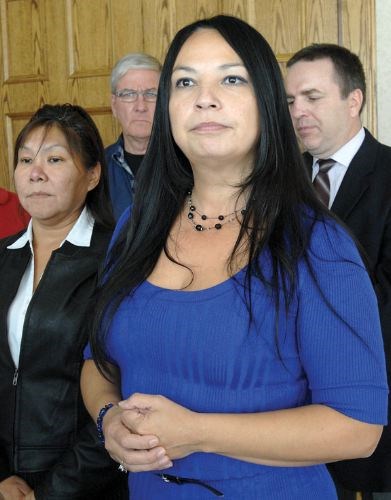Responsibility for aboriginal youth in care should be turned over to First Nations social agencies as part of any overhaul of the Ministry of Children and Families, says Carrier Sekani Family Services executive director Mary Teegee.
Teegee pointed to the transfer of authority for aboriginal health in B.C. from the federal government to the First Nations Health Authority as an example of how it can proceed.
"We should be doing that same work within child welfare," Teegee said. "We started that work, it's just that there is no longer funding for it, it was cut down a couple of years ago."
Teegee's comments were made in light of the release Monday of former deputy minister Bob Plecas' review of the Ministry of Children and Families.
Plecas recommended the provincial government pursue a strategic four-year plan that would include a "rethink of the management model" for MCFD.
Plecas also called for a $50-million increase to the ministry's budget to hire 120 more full-time staff in the coming year, followed by fixed increases over the next four years to restore diminished funding.
Additionally, Plecas said an indigenous or aboriginal person should be hired as an assistant deputy minister as part of strengthening the office of the child welfare director.
Teegee said keeping aboriginal children with their biological parents if at all possible needs to be emphasized and pointed to a one-year pilot program Carrier Sekani oversaw as an example of an approach that works.
The program provided six weeks of round-the-clock wrap-around support for "intensive family preservation."
"[In the past year], we have saved over 20 families that have not had their children removed because we provided that support," Teegee said. "We know that works, yet again, we're not funded to do that."
Regardless of their culture, children need to know who they are and where they come from, Teegee said.
"Later in life, they will have better outcomes if they have a strong sense of self and a strong sense of identity," Teegee said.
She also said the province needs to broaden its focus to account for youth no longer in state care.
"If you look at the outcomes for former children in care, the ones that have aged out, they have the highest rates of suicide, they're usually living in abject poverty, they're usually sexually exploited," Teegee said.
"They are the most vulnerable of our society, so obviously something is not working within the system."
In one high-profile case, Carley Fraser committed suicide in 2014, a day after she turned 19 and was no longer in care. Despite her mother's demands, the ministry refused to review the case, but recent legislation has changed B.C.'s Agreement with Youths to provide $5 million in support to youths aged 19 to 24 as they transition to adulthood.
Because of restricted funding, Teegee noted social workers employed by First Nations agencies are not compensated as well as an MCFD social worker.
Teegee was critical of Plecas' suggestion that children and youth representative Mary Ellen Turpel-Lafond should focus on advocacy while the ministry takes over responsibility for oversight.
"That really is not a good idea considering that we definitely need an independent body," Teegee said.



